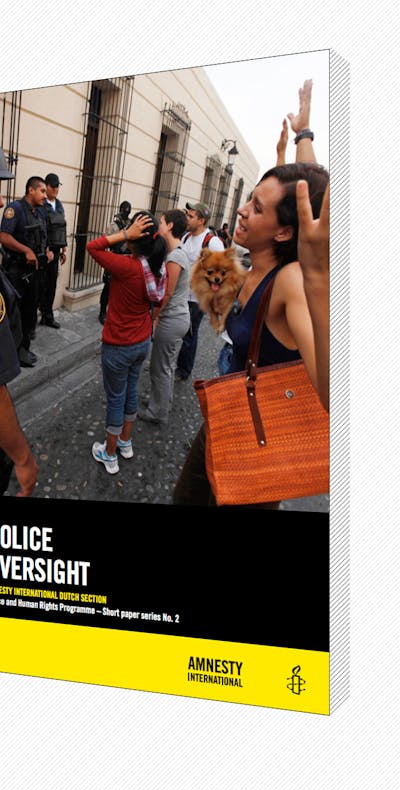
Short paper series no. 2: Police Oversight
In the beginning of 2015 PHRP has finalized a paper on police oversight (the second of the AINL PHRP short paper series). Police play a significant role in protecting society from violence and securing the rights of people. In doing so, they should at all times uphold the human rights of all persons. However, they can also be violators of exactly those rights.
Effective oversight mechanisms are necessary to balance the powers held by law enforcement officials, and ensure that they operate within the law. Oversight, for this purpose, refers to continuous accountability, before, during and after law enforcement operations. While international standards stress the importance of establishing accountability, there is little specification as to the structure or method required to achieve this goal.
The PHRP team has analysed a number of existing oversight mechanisms from a variety of countries in terms of their functioning and effectiveness, their strengths and weaknesses, as well as the processes that led to their creation. The purpose of the paper is not to present a one-model-fits-all idea of an effective police oversight mechanism since any such mechanism would have to be adapted to the specificities of each country. The purpose is rather to show the criteria and considerations to be taken into account when setting up an effective police oversight mechanism in terms of mandate, powers and authority, composition and resourcing.
Worldwide, Amnesty International and other human rights organisations strive to enhance police accountability and to strengthen independent control and oversight over police. It is hoped that the findings and recommendations of this paper are a useful support to that endeavour.
